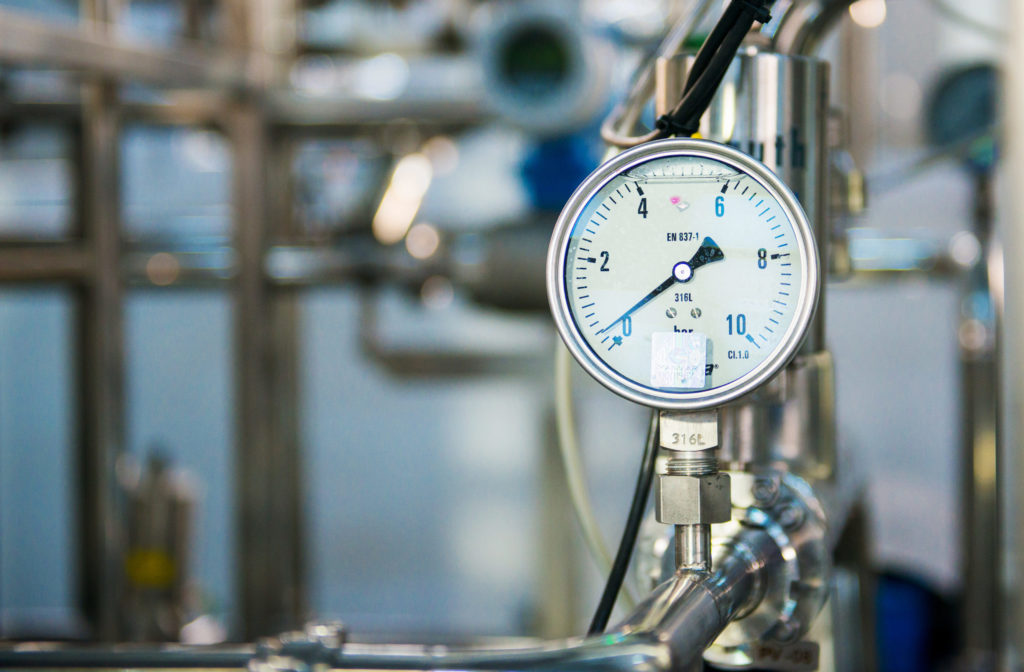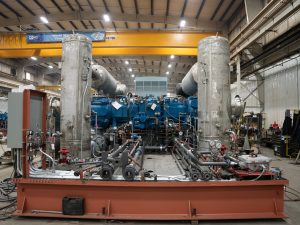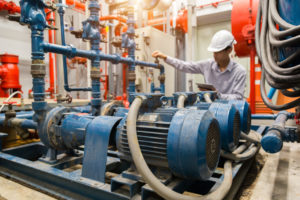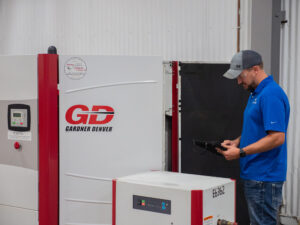There aren’t many people you come across that say, “WOW! I’m sure glad it is freezing outside!” The cold winter weather brings the holiday season, but it also brings threats to compressed air piping. Protecting compressed air piping from cold weather ensures operations continue without any interruptions.
While there are many activities that assist in protecting compressed air piping from cold weather, determining the correct activities will depend on how likely your compressed air piping will freeze due to the wintery conditions. Before you can determine what activities to take, there must first be an understanding of why freezing weather causes damage to compressed air piping.
FROST HEAVES ARE HEAVY BURDENS
In third grade, we all learned about solids, liquids, and gases. Water, for example, expands by about 9 percent when it reaches its freezing point. However, when water freezes underground, it is commonly referred to as frost heave. This is where the soil wells from the lowest point to the top. Sometimes, you can hear thunder-like sounds coming from the ground, which is the soil expanding. These frost heaves can damage foundations, roads and, you guessed it, gas pipelines and systems. But cold weather can also damage the electricity used to power and monitor those pipelines.
CHALLENGES WITH COLD WEATHER
Extreme cold weather conditions can cause plant outages. These outages may not seem like much on the surface, but they are problematic as it impacts the instrument and sensing lines within the plant. From auxiliary heat and boilers, to monitors and alert systems about compressed air piping issues, cold weather conditions can knock out the power which, in turn, knocks out the supply lines. Equipment or device malfunction due to icing is one of the most common challenges with cold weather.
Other challenges from cold weather include meter damage from snow or ice shedding off rooftops, or from falling trees due to ice accumulation and fractures due to expansion of moisture trapped inside components.
While cold weather impacts many regions, preventing damage to compressed air piping can be prevented. As the leader in compressor and pump solutions in Northeast Ohio for the last 76 years, we’ve dealt with some incredibly cold weather. To help you as the temperatures begin to drop, here are some ways you can be proactive in preventing issues with compressed air piping during cold weather.
ACTIVITIES TO MONITOR FREEZING OF PIPES
There is a wide variety of ways your company can monitor conditions to ensure your pipes do not freeze during the winter months. Some of these activities include:
- Periodically inspecting the site prior to winter months by a qualified individual for evidence of frost heave conditions or thaw settlement;
- Examine the buried piping above the frost line to see if there is evidence of deflection at joints while excavating for other jobs or projects to make good use of the activities;
- Visually inspect sites for standing water around risers or mounted equipment.
MITIGATION ACTIVITIES TO PREVENT FREEZING
While monitoring is a must, sometimes more extreme measures need to be taken. To mitigate freezing, some activities include:
-
- Replace cast-iron pipe and threaded steel pipe with plastic or welded steel pipe that can be impacted by frost heave.
- Remediation of drainage or soil conditions that promote frost heave at more appropriate sites.
- Correcting drainage conditions that yield standing water around risers or under low-mounted equipment.
- Drain or blow out moisture from equipment during routine maintenance or inspections;
- Clean external dirt or debris from surfaces and equipment.
- Protect equipment from direct impact of ice, snow or possible debris from trees.
The cold weather may bring the holiday season, but it also brings dangers to your compressed air piping. Protecting compressed air piping is imperative to making sure operations do not freeze to a halt. Some operations may require more in-depth analysis and mitigation. If that’s the case, contacting our ENERGY SERVICE TEAM can help evaluate, troubleshoot and solve your issues with cold weather.




